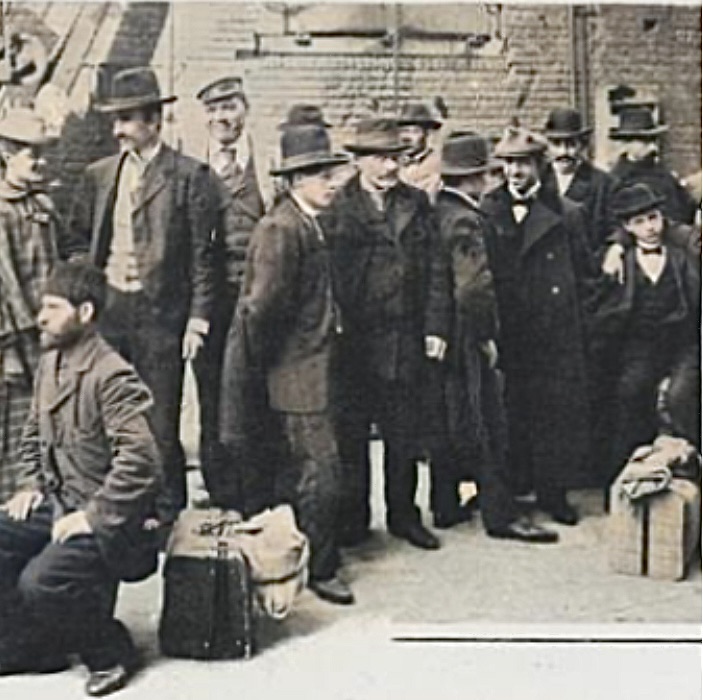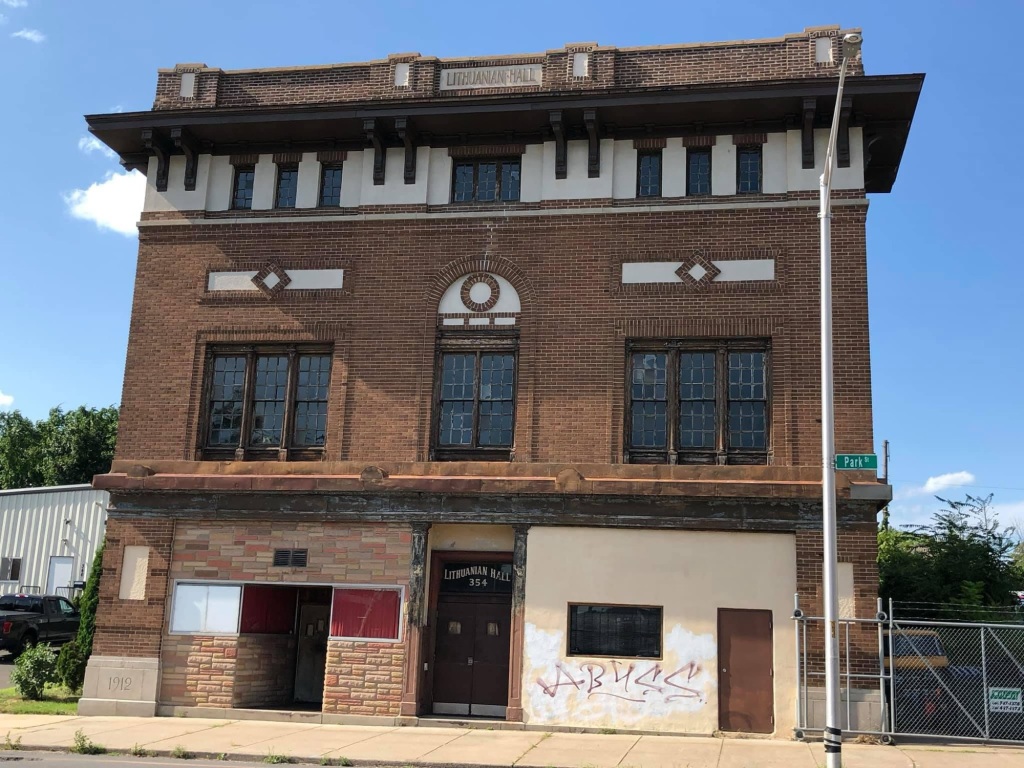A working man, known only as John, ended his life in 1907 on Arch Street in New Britain. He was a machinist by trade, but he had been unemployed for many months. John’s wife and child had both died the previous year. He was about 60 years old. He had nothing to live for, he told two young boys who were passing by, just after he drank a fatal bottle of laudanum.

The full effect of the new national recession had hit New Britain hard. Men were committing suicide because they couldn’t find work, couldn’t support their families. They were loathe to ask for charity; it had been pounded into them all their lives that begging showed weakness. Suicide was the second highest cause of violent death in Connecticut in 1907, a seven percent jump from 1906.
On Saturday January 25, 1908, jobless New Britain men met at Turner Hall, located near the place John had ended his life. They had previously contacted Mayor George Landers to seek assistance, but he answered there would be work on the roads in the spring. “By spring we’ll all be in Potter’s Field,” the graveyard for unidentified corpses, replied socialist speaker John Carlson.

The Industrial Workers of the World (IWW) was in New Britain, and organizer J.P. Thompson explained to the crowd the difference between craft unions that divided and weakened workers’ power, and the revolutionary industrial unionism of the Wobblies, which united all workers and required solidarity across all trades. John Carlson also urged the crowd to join the “One Big Union,” as the IWW was known. The Wobblies understood that economic slumps were built into the capitalist system. The union did not want to reform capitalism, the speakers insisted, but to create a system run by workers, for workers. Its plan: to “build a new world within the shell of the old.”
As part of their protest, hundreds of unemployed workers marched to Mayor Landers’ home. The mayor promptly told them he would not grant a permit for any outdoor meetings. The men then marched to the center of town for a massive outdoor meeting. “We believe we are entitled to at least enough to be able to live,” the marchers affirmed, “whether others can make a profit out of our labor or not.”
Reckless gambling by financial institutions had triggered the 1907 recession. This caused banks and businesses to fail, which threw workers out into the streets. The crisis got worse when Wall Street gamblers tried and failed to corner the copper market. This, in turn, started a rumor that the stock market was about to collapse– a rumor started by JP Morgan. The populist U.S. senator Robert LaFollette charged that Morgan and friends “deliberately brought on the late panic to serve their own ends.”

Speeches in Russian, Lithuanian and English exhorted the New Britain men to stand together and support each other. Emma Goldman had just visited the city in December, also at Turner Hall. (She addressed Hartford and Waterbury supporters that same weekend.) The speakers pointed out the cops in the audience, and in more than one language demanded that the chief of police be removed from his position. The city fathers and local police didn’t like this agitation, but there was not much they could do about it.

The growth of the IWW in New Britain was not meteoric, but it was steady, particularly in the Lithuanian community. A two-day campaign had signed up more than 150 workers. They wrapped up their recruitment victory at the Lithuanian Hall on Park Street.
Polish leader Waclaw Chotkowski used the hall to organize local Poles at two meetings in 1913. He invited IWW organizer, M.K. Bolis, who told two hundred workers about the Lawrence MA “Bread and Roses” strike victory the previous year. Stanley Bayer and Joseph Mazolka (the IWW’s local secretary) helped organize the event.
T.A. Flannagan, head of the Connecticut Federation of Labor, blamed the CFL’s poor organizing record on the IWW’s growth. At a speech in New Britain, Flannagan said “we would accomplish much more if it was not for those ‘isms’ keeping labor from the position it should rightfully organize. We must stop and consider the unwarranted, unlawful and destructive methods practiced by the so-called labor organization known as the I.W.W., the Industrial Workers of the World. They are a band of men and women who travel around the country [and have] as their object turmoil and destruction.”

Of course, the Wobblies caught hell for every act of vandalism in the towns they organized. In 1914, one Polish priest found his New Britain church desecrated after he spoke out against the IWW and other “opponents” of his church. Despite a large reward, no one was ever charged with the vandalism.
In July, 1919 New Britain detective Andrew Richardson told a reporter there was “a well-organized branch here” of the Wobblies which met at Skritulsky’s Hall on 26 Broad Street. After conferring with the State Police, Richardson implied there might soon be raids on IWW headquarters across the state.
He was right: just four months later, Connecticut’s infamous Palmer Raids—massive coordinated efforts by state and national authorities—came crashing down on workers in every town and city where there was labor unrest.